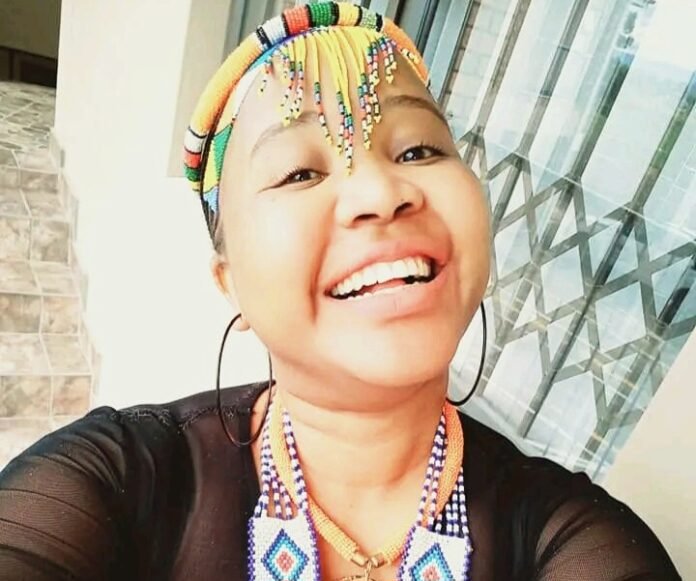A major corruption shockwave is rolling through South Africa after explosive testimony at the Madlanga Commission of Inquiry into police criminality revealed that suspended Deputy National Commissioner Shadrack Sibiya allegedly interfered directly in several high-profile investigations — including the unresolved 2022 murder of Eastern Cape woman Namhla Mtwa.
The revelations have triggered an unprecedented storm across social media, with a NOWinSA X post going viral and shooting to the top of News Today aggregation on the platform. The case has quickly become one of the week’s most talked-about national stories.
The commission — established by President Cyril Ramaphosa as a response to explosive allegations made on July 6 (2025) by police commissioner Lieutenant-General Nhlanhla Mkhwanazi — is rapidly exposing a deep-rooted crisis inside South Africa’s policing structures.
The allegations are severe
Testifying before Judge Madlanga, Major-General Mary Motsepe told the commission that Sibiya personally recalled the main docket for Namhla Mtwa’s murder twice, allegedly halting progress on the arrest of the prime suspect.
Mtwa was gunned down with nine bullets in April 2022 while attempting to leave an abusive relationship. Three suspects – not police officer officers aa Motsepe initally reported – who investigated her murder were later killed, intensifying public anger.
Motsepe further testified that in March 2024, Sibiya withdrew 12 dockets from the KwaZulu-Natal Political Killings Task Team (PKTT) — some involving high-risk election-period assassinations — and kept them inactive in Pretoria for months, despite explicit prosecutor directives.
In his July 7 big reveal, which formed a backbone of the commission’s mandat, General Mkhwanazi also referenced similar obstruction patterns seen in the Senzo Meyiwa murder case.
SA reacts: ‘Her killer is known. Say her name’
South Africans erupted on X as the revelations spread, with the viral NOWinSA post – approaching half a million views at the time of publishing this news article – prompting thousands of comments within hours.
Some of the strongest reactions included:
• “Namhla’s docket was one of the PKTT dockets Sibiya kept locked up in his office. From KZN to Gauteng. I hate this man.” – @NahLayDay
• “Three officers investigating the assassination of Namhla Mtwa were also killed,” wrote another user, quoting Motsepe’s testimony. — @Snesipho_LR
• “Fight, Namhla! Fight for yourself ntombazana,” another wrote through tears. “Her killer is known, well connected … and it was so public.’ — @WhyUfikelate
• “Her name is Namhla Mtwa. Nine bullets were pumped into her body … it’s been three years and no arrests made. REMEMBER HER NAME.“ — @joy_zelda
The commission’s evidence has revived national focus on gender-based violence (GBV), political intimidation, and the unresolved assassinations that continue to plague South Africa.
A pattern of high-level interference?
Motsepe’s testimony aligns with what experts have long warned: that some senior police officials may be protecting criminal networks, especially in provinces like KwaZulu-Natal where political violence intensifies around election cycles.
The commission is also evaluating allegations of a R2.5 million bail bribe involving senior judicial figures, further escalating concerns about systemic rot within the justice system (read that report here).
These revelations together paint a picture of a policing environment where high-stakes cases — from political killings to GBV-driven murders — can be deliberately derailed at the top.
Why Namhla’s case matters now — more than ever
For many South Africans, Namhla Mtwa has become a symbol of two struggles:
1. GBV that goes unpunished.
2. A policing system accused of sabotaging justice from within.
The public’s emotional reaction — especially the renewed “Say Her Name” movement — underscores how deeply the case resonates in a country exhausted by both corruption and violence against women.
What happens next?
The Madlanga Commission remains in session with more high-level SAPS officials expected to testify. It will ultimately produce findings and recommendations that could redefine accountability in the police service.
Meanwhile, political pressure is mounting on President Ramaphosa and Parliament to guarantee that no implicated official returns to operational policing roles, regardless of rank or affiliation.
(Also read: How Julius Malema rescued Parliament’s Ad Hoc Committee from collapse
With national elections approaching and political violence already rising, the commission’s revelations may be among the most consequential of the year.

